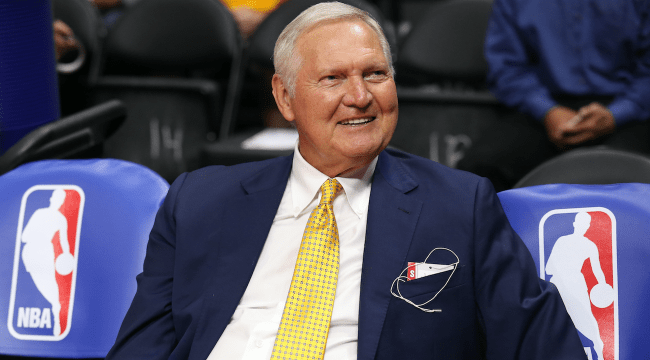
The game has changed. That’s not up for debate, and the justification behind the shift isn’t, either. The abolishment of hand-checking, allowance of zone defenses, stark evolution in overall defensive concepts, and collective understanding of expected shot efficiency have combined to usher in the NBA’s current style of play, one marked by ball and player movement more than anything else.
Basketball is more beautiful now than it’s ever been before. As James Naismith hung two peach baskets from the railings of a Springfield, Massachusetts YMCA in 1891, it’s fair to imagine he hoped his sport would eventually be played like it is today – a game where every player in the game matters, irrespective of where the ball is on the floor.
But a sizable and vocal contingent of former players still long for days passed. They bemoan the league’s reliance on three-pointers, poke fun at its health-conscious flagrant foul rules, and rue its comparative lack of classic back-to-the-basket big men. The NBA, they believe, is headed in the wrong direction, on a course taking it farther and farther from the supposed golden age of the 1980s and 90s.
It would be safe to assume that Jerry West, one of the most competitive and cocksure players of all time, falls under the category of stubborn old-timers who insists his era was without peer. But as the 77-year-old makes clear in an interview with ESPN’s Ethan Sherwood Strauss, he fully appreciates merits of the modern game – and has used that grasp of current concepts to make an impact in his role as an advisor to the Golden State Warriors.
No team in basketball made more three-pointers or had a better defense than the reigning champions last season. As relentlessly important to the Warriors’ success as Steph Curry and Klay Thompson were in creating hordes of space offensively by letting fly from deep, the team’s relentlessly consistent rotations on the other end of the floor pitched in and did more than pull their weight. The most effective defenses are played on a string, and Golden State’s never frayed.
That wholly unique blend of prowess, West suggests, is not only every team should strive to achieve, but also a byproduct of basketball’s overall stylistic evolution. Here’s what “Mr. Clutch” had to say when asked what has changed most about the game since his playing days ended in 1974:
I think the 3-point line has definitely changed the game. Also the league has changed in that the 3-point line has brought shooting back in the game and spread the court a little bit more. At one time we were asked to play your own man; you’re responsible for your own man. And, if you were good enough and kind of a ball hawk, you helped everyone else. Now it’s really much more of a team concept defensively than it was when we played. That would be the biggest difference.
Space and the freedom of movement it provides is what West believes is the real influence of the three-point line, and it’s hard to argue otherwise. International and college basketball have never stood in starker contrast to NBA hoops. Why? Shorter three-point arcs crunch the floor, making defensive rotations quicker and limiting positive returns gleaned from swinging the ball side to side.
Current NBA basketball is more of a team game than ever before. If an offensive player on the weak side of the ball is stationed too far from the corner of a high pick-and-roll, the integrity of that initial action is easily compromised. And, conversely, if the defender guarding that player over-helps toward the ball, his entire team will suffer consequences of that barely perceptible misstep.
The margin for error of all 10 players on the court is thinner in 2015 than at any other point in league history. Does that mean the NBA is better? We certainly think so, and West explained as much in a way that only a person with his supreme knowledge of the game could – and indirectly indicated why the Warriors have the tools to be historically great.
[Via ESPN]






